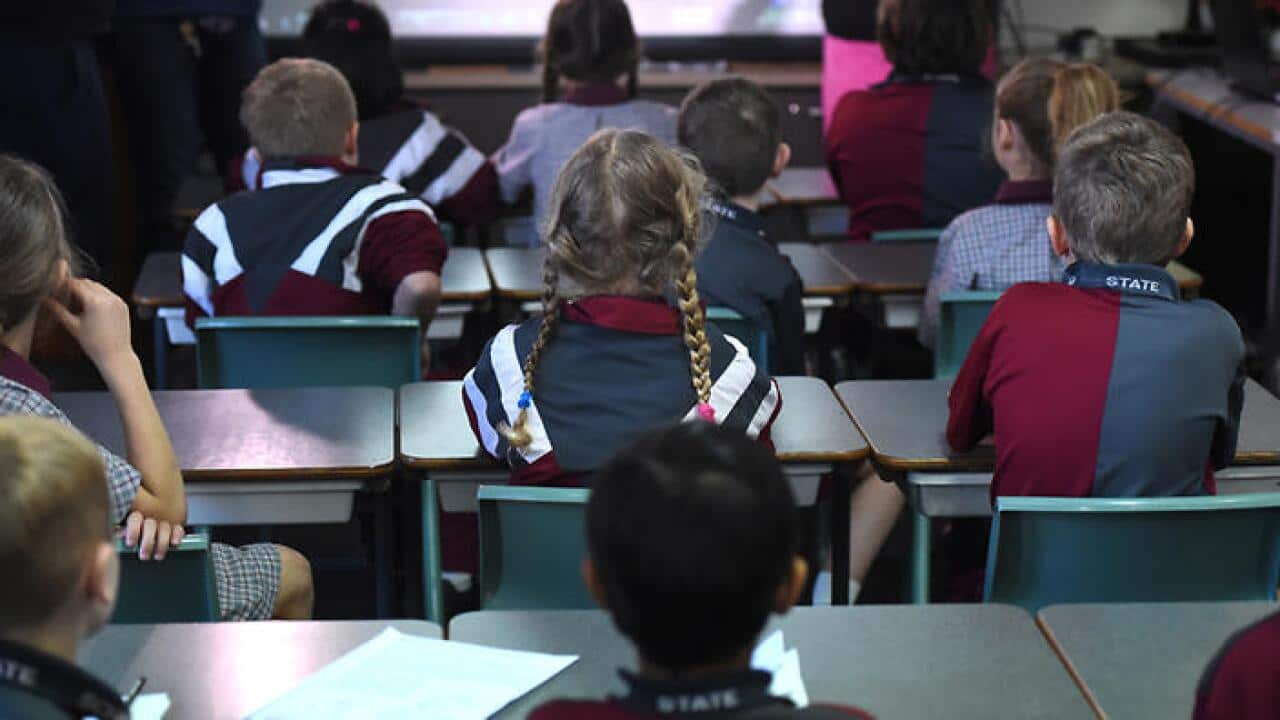Helen Barrett’s job as a primary school teacher is anything but predictable. But that’s mostly because her students don’t fit the stereotypical image of well-behaved school children.
As Barrett tells SBS, violent outbursts and incidents of verbal abuse are not uncommon at The Chesire School in Melbourne’s outer south-east.
“The biggest challenge is that you just don’t know what’s going to happen each day; you can have amazing days but you can also have days where the team is really stretched. If three or four children are having issues that day, then we’re really under pressure,” she says.
Many of the children who attend Chesire, some as young as four years old, usually don’t have any other schooling options; they’ve either been suspended or expelled from mainstream schools.
“That’s one of the biggest challenges of the job, you just don’t know what’s going to happen,” says the assistant principal and senior teacher.
“We have a team of psychologists working with us, we're very proactive at stopping anything that could happen, but even with all the expertise on the team, you can still have children that have meltdowns and we need to have lockdowns.”
The specialist school provides intense intervention and education for its students, all of whom have significant emotional, behavioral and social problems.
Barrett explains that many students have been diagnosed with or while others simply have not been able to conform to the demands of the mainstream school system. It’s a tough environment, Barrett admits, but among the bleak days, there are also moments when students have genuine breakthroughs.
“We might have a student whose trigger might be math and when it’s time for math in the classroom, they will lift a table and throw insults.”
If three or four children are having issues that day, then we’re really under pressure.
“But gradually, as the student starts to improve, they start to regulate their behaviour. They still might have five minutes in a chill space but they can then come back and persevere and get through the task.”
Barrett says the best part of her job is seeing how pleased students become with themselves once they persist and accomplish a task.
“They’ve had years of failure, being told that they’re naughty and can’t do something, so for them, being able to finish something or accomplish something, that is the best feeling in the world. When they first come in, they often hate me but once you’ve got that respect, you’re the best person in the world. That makes it all worthwhile.”
There are just 22 students at The Cheshire School; the size is deliberately kept small to ensure that students get enough one-on-one attention.
The school was founded in 1985 as a place for child state wards to get the support they needed, which mainstream schools couldn’t provide at the time. It’s since developed to support two classes – foundation to Year 2, and Year 3 to Year 5, with 11 students in each class. Most students when they come to The Cheshire School have fallen behind academically, so the multi-year system works.
The typical student will spend about 18 months at the school, as the end goal is to get the student back to the mainstream school system.
They’ve had years of failure, being told that they’re naughty and can’t do something, so for them, being able to finish something or accomplish something, that is the best feeling in the world.
At the end of the students’ time at The Cheshire School, they ‘graduate’ in the ceremony that is highly emotional for everyone, Barrett says.
“They talk about how they’ve benefited and everyone in the room is crying about their journey. They talk about what they were like when they come in and how they’ve changed.”
The highs and lows are extreme, but Barrett is dedicated to her work, because it’s making a genuine difference.
She recalls one student, one of her first, who had an absolute hatred of maths, and for a while, her.
“He hated math for a whole term and then the next term, he gradually started to improve and he started to like it because he felt like he could do it,” she explains.
“And in the end, he said, “I absolutely love math” and he made me this big card all about subtractions to show how happy he was and thanking me. His mum came in the following term and said that he’d got the best report he’d ever had.”
“It’s nice when you’ve managed to change the lives of a whole family.”
She says gradual change is a welcome relief from the tough moments, which can include students kicking, pushed and yelling at staff. It’s “really emotionally draining”, Barrett says, adding that staff have daily debriefing sessions so they’re able to come back the next day.
“You can’t take anything personally. We do debrief, we have to, otherwise I don’t think we’d come back the next day.”
Those conditions make is extremely hard to attract staff, she says, despite the need - there is a constant waiting list for desperate parents to get their Barrett children into the school.
“It’s almost impossible because not only do we need really skilled teachers but they need to be really creative with the curriculum and also need to manage the most challenging behaviour that they have ever seen. We have a lot to offer as a school.”
Testing Teachers' is a three-part observational documentary that will take viewers behind the school gate to reveal the struggles and success Australian teachers face in the schools of Australia's toughest communities. It follows six first-time teachers over the course of 12 months as they start their new career. Testing Teachers premieres on SBS on Wednesday 19 April at 8.30pm and will be available after broadcast, streaming anytime on




